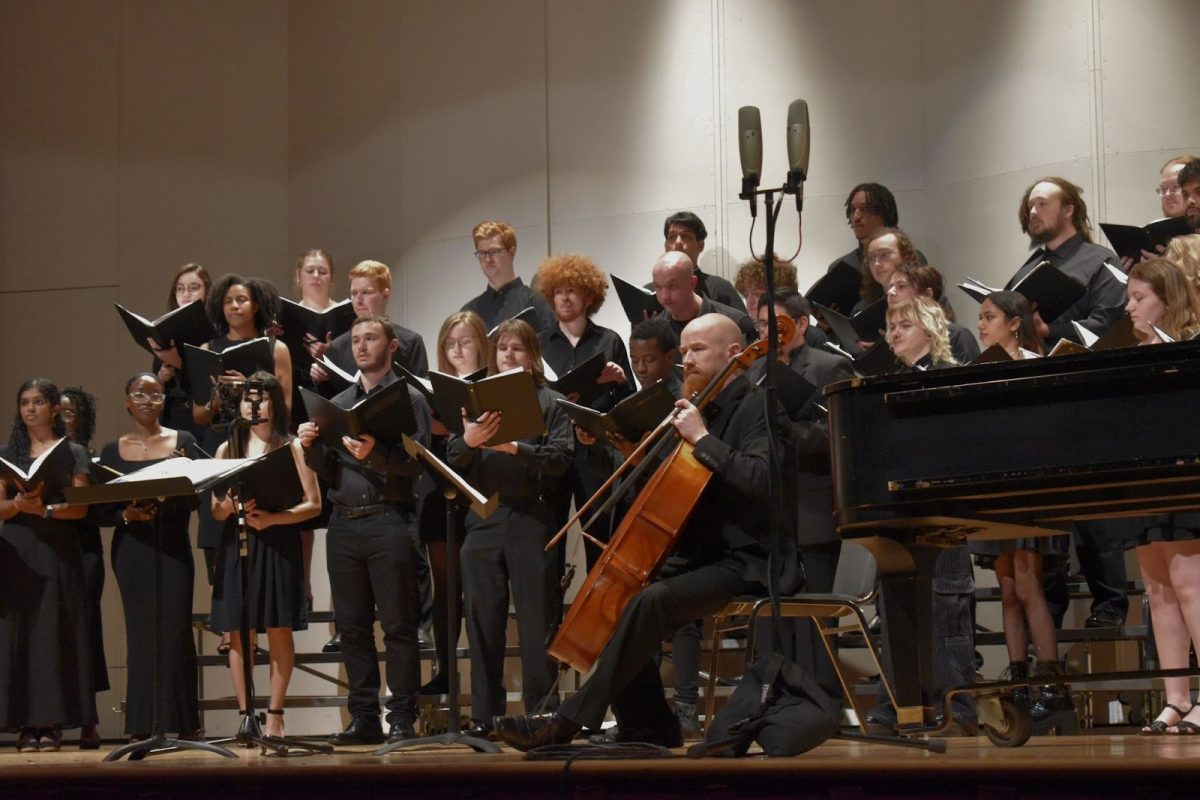Would you be upset if robots took over your workplace?
It depends on your feelings toward artificial intelligence. Also known as AI, artificial intelligence has taken its place in the modern era. Programs like NightCafe and OpenArt have given hobbyists the ability to use generated art for their personal use. On the other hand, social media apps (such as TikTok and Instagram) are rebuked for using AI to predict what users will buy through algorithms. This new technology is concerning students and professionals about what AI could be capable of doing in the future.
Jacie Livengood, an experience design major at Guilford College, said “AI is actually just stealing art from other artists … and instead of supporting actual artists, you’re supporting the plagiarized version of art.” It is an obvious worry for college students that computer-generated art is founded on the plagiarism of designers whose art is free to use. Unless artists copyright their work, their art can be used as models for AI to ultimately copy from.
Livengood and another Guilford student, Nora Cornelison, both have concerns about AI and how it takes away from designers who are passionate about their work. A major issue is that AI art cannot replicate the same level of emotions that artists can put into their craft, Livengood and Cornelison said. This takes away the most important aspect of creativity: the emotional aesthetic. “Art is about encapsulating human emotion and if it loses that, it wouldn’t be art — it would just be a picture,” Cornelison said.
In addition, Cornelison fears that AI usage by companies could take away livelihoods and work opportunities that potential employees have spent years studying and preparing to pursue. “Learning how to draw perspectives and composition takes years of an artist’s life to get right — it is a lifestyle,” Cornelison said. She hopes regulation will be put into place that keeps AI from overtaking employment for artists, allowing future artists to showcase their skills in the professional world.
However, AI may not completely threaten the future of artists’ careers. Cornelison noted that computers have been helping artists for quite a while now. “In-betweens” — the frames between animation sequences that are tedious for an illustrator to render — have been completed with AI. This makes animating faster. This is just one example of how AI programs boost efficiency and productivity for companies by completing small, repetitive tasks for employees.
Cornelison and Livengood also noted that AI design can help companies generate new ideas. Modeling, referencing and composition perspectives can all be serviced by programs that produce artificial images. In turn, these references and perspectives can be used by designers, who will finish what the AI started.
Lastly, Mark Dixon, an associate professor in art studies at Guilford, suggests that AI can only replicate a slice of organic human intelligence. Intelligence is a complex and detailed concept that is built upon thoughts that are built upon thoughts, he said.
“Computers cannot contextualize the way that humans can,” Dixon said. If employees are willing to continue displaying their passion for art, companies may not want to outsource them to AI. “Labor is beautiful, and humans are built to overcome new obstacles,” he said. “If AI is an obstacle, we will work through it.”













